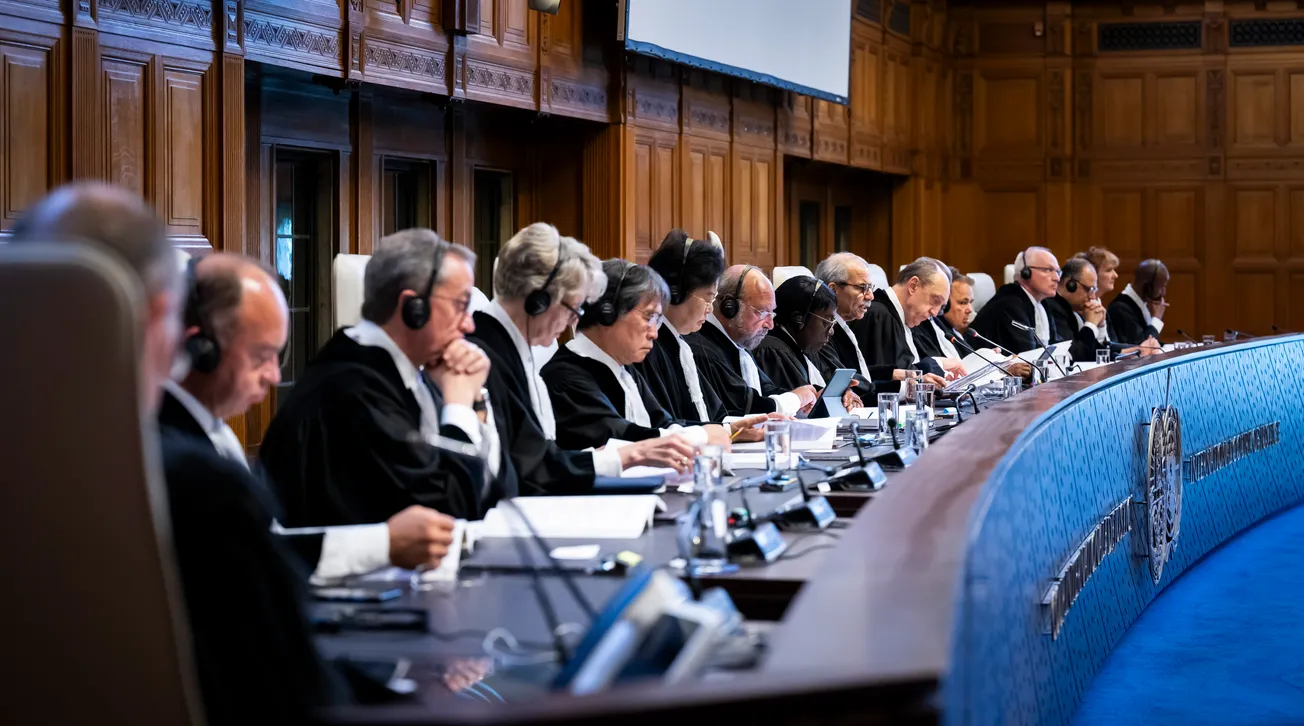In a scathing rejection of Israel’s policies and practices in the Occupied Palestinian Territory (OPT) and East Jerusalem, the International Court of Justice (ICJ) issued an Advisory Opinion on July 19. It directs Israel to “bring an end to its unlawful presence” in the territories, to “cease immediately all new settlement activities, and evacuate all settlers from” the territories. Furthermore, the ICJ Opinion holds “all states,” “international organizations” and the UN “under obligation” to “not recognize as legal” the “unlawful presence of the State of Israel in the Occupied Palestinian Territory,” and thereby must not “render aid or assistance” to the ongoing Israeli occupation.
This case arose from a December 2022, UN General Assembly resolution which sought that the ICJ give an advisory opinion on the “legal consequences” arising from then “ongoing violation by Israel of the right of the Palestinian people to self-determination” due to the “prolonged occupation, settlement and annexation” of Palestinian territories since 1967. Later, the Arab League, the Organization of Islamic Cooperation, and the African Union joined the request. At the outset of delivering today’s opinion, ICJ President Nawaf Salam noted that the Court’s findings are not related to events in the aftermath of October 7, 2023, but rather many of the findings date back to the 1967 start of the occupation.
In an extraordinary detailed opinion the Court examined 11 areas of concern regarding “Israel’s policies and practices” in the Occupied Palestinian Territory: 1) settlement policy; 2) transfer of settlers; 3) exploitation of natural resources; 4) extension of Israeli law to the West Bank and Jerusalem; 5) forced displacement of Palestinian population; 6) violence against Palestinians; 7) Israeli settlements in the West Bank and East Jerusalem; 8) annexation of OPT; 9) discriminatory legislation and measures; 10) residence permit discrimination; and 11) impact on Palestinians’ right to self-determination.
The high court pointed, throughout its opinion, that Israel’s “prolonged occupation” of the OPT is in violation of international human rights law which delineates certain obligations of the “occupying power” e.g. a “duty to administer the territory for benefit of the local population.” Under lawful occupation, an occupying power “cannot transfer title of sovereignty” to itself. Yet, in the case of settlements policies carried out by Israel, exactly such transfers have occurred.




